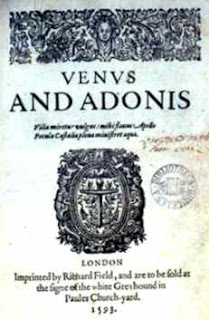“A determined soul will do more with a rusty monkey wrench than a loafer will accomplish with all the tools in a machine shop”
-Robert Hughes
As the etymological dictionary on your bedside table will tell you, the verb ‘to impress’ come from the Latin impressus, meaning ‘press into or upon, stamp’ and was taken into English parlance in the 14th Century as meaning ‘to apply with pressure, making a permanent image in’. Now of course, we use it to describe things that we think are kinda cool.
So, you know how sometimes you’re just really impressed by people? Not by any one action or attribute, but by something about them fundamentally. I feel that about the poet, Ross Sutherland. In both senses.
For those of you who have not read Sutherland’s work, I strongly recommend you pick up his profound and incredibly amusing debut collection, Things To Do Before You Leave Town and let yourself be carried away by writing which is idiosyncratic and fresh in a way which (as is so rarely the case in poetry) does not leave the reader feeling shut out or like they somehow ‘don’t get it’.
Whilst I find Sutherland’s work incredibly entertaining and enjoyable on the page, I also highly recommend that you go see one of his live performances to really get the full breadth of his talents. In today’s article, I will be discussing his article which is perhaps best supplemented by this video here, if you’re the sort of person who likes having lots of windows open at the same time while you pay a modicum of attention to all and none of them.
What I want to talk about, with regards to Sutherland, is a poetic trick of his that I first read about in his essay in the anthology, Stress Fractures: Essays on Poetry. In Sutherland’s essay, ‘Every Rendition on a Broken Machine’, he extols the virtues of using online text translators as an aid in poetry’s redrafting process. To be more specific, he sees the translators as less of an aid than a “collaborator” in the process.
“I began to feed famous poems into the translator, bouncing them back and forth between the different languages, then back into English. With every translation, the program was forced to collapse the ambiguity of the original.”
The essay continues down fascinating avenues of unpacking what the machine’s ‘bias’ is in the ways that it pulls apart poetry when bouncing it across languages on a sea of zeroes and ones (on one particular machine translation ‘Nude Descending a Staircase’ becomes ‘Of Reduced Principle Scale’), Sutherland points out that ‘the most notable thing here is that the program has removed all human elements from the poem’.
When we think about this, it is quite terrifying that the ultimate way to ‘collapse ambiguity’, as Sutherland puts it, is to eradicate the human element. Which is, I suppose, why machines will never be poets (if we take the term ‘machine’ and the term ‘poet’ to mean what we currently take them for). I mean, unless you count that crazy David Link bag of weirdness.
Poets, not all of them, but almost all of them, thrive on duality of meaning and saying things which are only tenuously analogous to what they are actually attempting to communicate. This is entirely at odds with the inner working of the machine. This is part of the reason why I love Ross Sutherland’s eTranslation poetry – it entirely rests on making poets and machines behave in ways that they are not expected to.
It is not within a poet’s instinct to ‘draft’ by entering someone else’s text into a digital box. It is not in a machine’s instinct to deal with the delicate nuance of poetic diction. But here they are, with Sutherland’s method, forced to compromise for the greater good. Which is another reason why I like this; neither the poet, nor the machine can take full credit for the outcome. They are working together toward something that neither of them could have done alone, which is a very healthy collaborative balance to have when thinking of poets’ egos.
Of course, the whole thing looks too much fun not to have a go with, so I had a stab at eTranslating Robert Frost’s Stopping By Woods. Here’s what came out for the title and opening quatrain after a while…
I live in the forest as an individual
I guess I do not know the two forests,
It’s his home town,
but he’s still too good
to see the snow that covers me.
I say this now for anybody reading this who thinks that Sutherland’s machine-translations are a lazy approach to creativity… those five lines just took me forty minutes. And you can still just about recognise the original poem in them. Think how long it must have taken old Ross, translating away long into the night, bouncing the English Literary Heritage from language to language, chopping up syntax and sense along the way.
Maybe when the holidays come up, I’ll donate more time to sitting at home remoulding some literary classics with an electronic procrustean bed. It seems every bit as intellectually valid as smoking too much weed and blurting out Howl.
Phil Brown
Poetry Editor





































